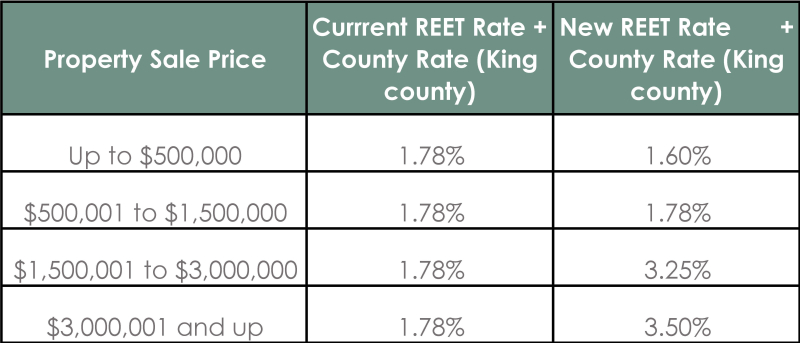How are my property taxes determined? They should be 1% of current market value, correct?
Well, no not really. Last week, I covered why property taxes are estimated for new construction condos, this week I want to dig deeper into how your property taxes are determined, especially in light of the recent news about the upcoming Local Improvement District (LID) tax that will be used to help fund the new waterfront revitalization in Seattle.
- Aren’t my property taxes supposed to be 1% of current market value? No, this is a common misconception. While there is state legislation that caps the regular combined property taxes at 1% of your property’s assessed value, this cap does not include voter approved special levies such as those for schools, or local improvement district (LID) taxes. So, your property tax bill could be more than 1% of your assessed value, or it could be less.
- Current market value and tax assessed value should be the same amount. Not true. Your tax assessed value is determined by the county assessor’s office. The current market value of a property is just that, what the buying market is willing to pay for your property. This can change from month to month in any given year based on the market activity and recent sales in that area. While it’s true that the market value of your home may influence whether your taxes go up or go down over time, your tax assessed value will remain the same for the year of the current assessment, until the assessor reassesses it for your next year’s tax bill.
Now that we have that out of the way, where does the actual tax amount come from, you might wonder?
Well, it’s based on the specific tax district that your property is within, and what the specific levy rate is for that district. And it’s assessed per $1,000 of assessed value. In the city of Seattle’s case, most of the city falls under levy code 0010 which for 2018 is $9.56207 per $1,000 of tax assessed value. However, there are 8 taxing districts within Seattle so it does depend where the property is located within the city.
But to keep it simple, here is an example. Say you own a condo up on Queen Anne that has a tax assessed value of $500,000 for 2018. The levy code for this area is 0010, which like most areas of Seattle is $9.56207 per $1,000 of assessed value. So, in this example, the annual total property tax would be $4,781 assuming there are no other special assessments or LID taxes for the tax district. Further, let’s assume the condo was recently on market and sold for $650,000 after multiple offers. In this example, even though the “market value” of the condo is $650,000, which was verified by the buyer’s lender’s appraiser when it sold, the tax owed is still based off the last tax assessed value of $500,000 and will remain that way until the tax assessor reassesses the property value.
For more information on tax levy rates, and the specific levy codes for Seattle, you can visit the King County Tax Assessors website at www.kingcounty.gov/assessor.
By Marco Kronen with Seattle Condo Review: A guide to Seattle downtown condos.




Leave A Comment